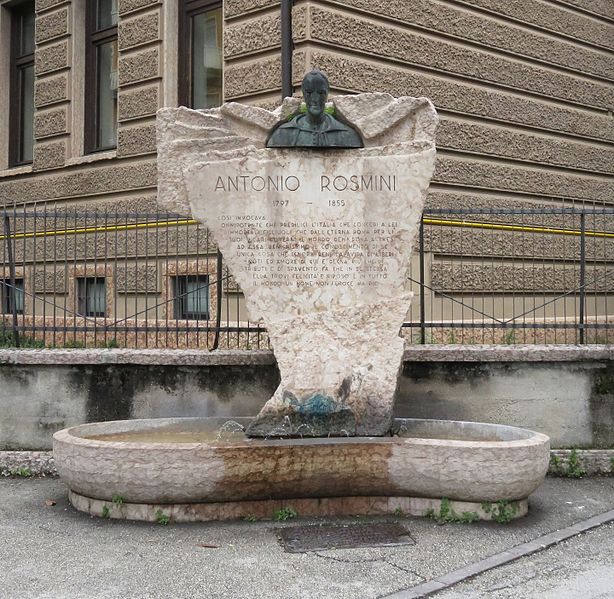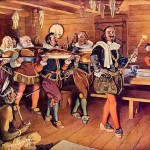
Monumento Antonio Rosmini a Trento – Lungoleno – CC BY-SA 4.0
Nope, that’s not a monument to Twentieth Century Italian philosopher Augusto Del Noce. He doesn’t have one (yet) that I’m aware of. That’s a monument to Antonio Rosmini, Italian “priest, philosopher, and patriot” who Del Noce contrasted with Nietzsche as presenting a clear line of thought into Modernity which preserves a deep engagement with metaphysics.
As Del Noce has it, the most well-worn path of philosophy goes from Descartes to Nietzsche. But there’s another that moves from Descartes, through Vico and Pascal, to Rosmini. The second path presents, as translator Carlo Lancellotti writes in his preface to The Crises of Modernity, “does not conclude in nihilism, but in the rediscovery and purification of classical metaphysical thought.”
Of course, the path doesn’t end with Rosmini, and staying on it requires a turn away from Marx.
Why?
In his youth, Del Noce studied in France and was deeply influence by Étienne Gilson, Henri Gouhier, and Jean Laporte. But he was moved above all by Jacques Maritain, because Del Noce wanted a non-reactionary way to account from the movement of history in light of classical and Christian traditions. In the post World War II defense of civilization from Fascism, many Catholic thinkers sought a kind of reconciliation (if not an all out synthesis) with Marxist thought. But Del Noce turned away from Marxism for two reasons.
The first was that Marxism takes atheism as its prerequisite, not its conclusion.
As Lancellotti writes:
The position of the ‘Catholic Left’ was predicated upon the notion that atheism is an accessory element of Marxism, and that the core of Marx’s thought is a socio-political analysis that can be separated from the ‘religious’ aspect and used in order to fight Fascism and promote social justice. Del Noce realized that, on the contrary, all of Marx’s thought is a consistent development of the radical metaphysical principle that freedom requires self creation, and thus the rejection of all possible forms of dependence, especially dependence on God.
One of the important conclusions of this realization is that “ethics must be subordinated to the progress of the revolution, and not vice versa” (Lancelotti, xii).
This leads to Del Noce’s second reason for abandoning Marx: the moral rejection of the notion that violence is justified for the sake of revolution – which I’ll explore further in my next post.











